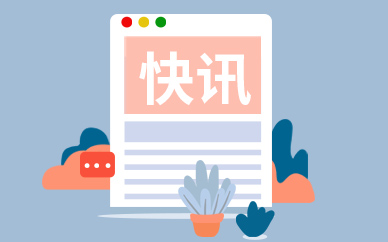
AChinese-brokeredpeacedealbetweenthelong-termfoesSaudiArabiaandIranh
GMW.cn 2023-04-19 01:10:48
A Chinese-brokered peace deal between the long-term foes Saudi Arabia and Iran has either shocked or delighted audiences worldwide, depending on their geopolitical standpoints. Anti-imperialists, people with a “peace first” attitude, especially directly impacted populations in West Asia, applaud the diplomatic success and hope for more to come, realizing what an economic powerhouse West Asia could become, with the extremely wealthy and resource-rich Arab nations, and the populous and highly industrialized Persian nation, if all the small and big armed proxy conflicts in the region can eventually be defused.
While further development remains not certain, an important foundation has been laid, when the leaders of Sunni and Shia Islam can shake hands and agree to talk. This development caught the West, with all its attention focused on Ukraine, by complete surprise. Even more shocking to many in the West is the fact that the rapprochement was mediated by patient and painstaking Chinese diplomacy. China, which is presented by Western media as a “dangerous”, “expanding”, or “threatening” actor with “no friends”, manages a diplomatic success that has eluded the Western former colonial powers for decades.
 【资料图】
【资料图】
There’s no reason why this success should not be welcomed and celebrated by Europe and the US. While the timing may not have been predicted by many, the fact that China brought enemies together to talk peace is no surprise at all to anyone following Chinese diplomacy and political theory.
First, judging from Chinese international activities, it is obvious that for China, more than for any other great power, peace is in its national interest: China’s global “expansion”, i.e. China’s increasing global footprints, is not achieved by territorial expansion, colonialism, or military adventure, but rather through trade at first, and investment later. Investment includes both state-level infrastructure build-up, and individual level migration and small-scale investment in local shops, trade businesses, or other SMEs. All these economic activities need peace to yield a return. None of them requires military intervention, regime change or color revolution.
Second, the political theory of China in recent years has developed a concept called “community of a shared future for mankind”. Although the English translation is not beautiful, its philosophical value is worth to be explored: As humanity is brought together on this planet, whether we want it or not, we can only work together to achieve the best outcome for as many people as possible.
The concept combines the universalist approach of recognizing “we all are humans” and therefore all hope for a good life, with an anti-colonial, anti-imperialist standpoint that allows people to find happiness according to their own culture, values and traditions. It is neither indifferent to the suffering of others, nor imposing one’s own values on others. The concept further analyzes this overarching goal in various fields of “community with a shared future” such as security, economy, environment, etc.; each of which can only be achieved when countries work together, while a nationalistic approach is bound to fail.
Take for example the security community with a shared future strongly supports the globally accepted principle that security of one side mustn’t be ensured by threatening another side. The success of bringing long-term enemies like Iran and Saudi Arabia together to agree to a peace which will benefit both is a great example of this concept. If Iran would successfully develop nuclear weapons, it may feel safe from any Saudi threats, but Saudi Arabia would be very worried, and vice versa. If Iran can receive credible security guarantees, the need for nuclear weapons is reduced, and all sides are safer in the entire region. Saudi Arabia may have historical and religious tensions with Iran, but also for Saudi Arabia it is much better when the region can end its proxy wars and prosper together. Realizing that both sides will live next to each other into the far future is the basic principle to discuss how to end hostilities, rather than “who is right”.
Third, the ethical values of China are in line with the diplomatic success: When peace is secured, economic development can thrive; when the economy prospers, people’s lives can be improved; when people get richer, they can afford higher priced goods which benefits industrialized countries like China and Europe. So, there’s a utilitarian aspect of Chinese national economic interest, but there are also humanist, socialist, and anti-imperialist aspects. Humanist, because humans around the world aspire to a life in prosperity and peace. Some people – typically Western NGOs – may want to preserve everything traditional in other countries. But to romanticize an underdeveloped, tribal society living in autarky rather than joining the world economy is a colonial concept of rich people who would like to see traditional people on their safaris and photo tours. China let’s partners decide for themselves, what forms of development they aspire for, which aspects of their culture they want to preserve, and how. Socialist or Communist because it supports the ideal of “workers around the world uniting” to improve the material lives of the working class. And anti-imperialist because China does not advocate one form of modernity to fit all societies.
One of the most appealing aspects of China for developing countries is the promise that they can modernize and industrialize without sacrificing their identities, cultures, and traditions. Unlike the Western approach of “value-based diplomacy”, with its one-size-fits-all understanding of democracy, its globalist NGOs expected to reach directly into societies that partner with the West, its corporations attempting to set the rules in developing countries, China proposes a world vision which allows nations to define their own boundaries of openness vs. preservation of traditions. There’s admittedly room for improvement, when underdeveloped nations lack the expertise to set strict enough rules when welcoming massive enterprises from China and elsewhere into their nation. But that’s a practical issue to be solved with education and negotiations, not a conceptual flaw.
Lastly, if we look at methodology, the community with a shared future for mankind doesn’t impose itself on other countries, but aims to set mutually agreed principles under which parties negotiate mutually acceptable outcomes. Such an approach takes a lot of time and patience. Various stakeholders and interest groups in each participating country must be taken into consideration and involved in complex negotiations. This needs a lot of manpower, as well as superior coordination and communication skills within a diplomatic corps organizing such negotiations. And it needs the ability to truly listen, not to what one wants to hear, but to what the other is trying to express.
It would be naïve to claim China never uses pressure or monetary incentives to protect its security bottom lines, but isn’t that a far more humanist use of one’s resources in diplomacy, compared with military intimidation, threats, and regime change operations by other great powers to protect their national interest? China offers benefits in exchange for voluntary cooperation. Nobody is forced by China to give up good relations with Europe or the US. This is a show of true strength and self-confidence. And it creates a diplomatic ecosystem within which enemies can find peace, for the benefit of all sides involved, and especially for the people living there.
In summary, Europe should not see this Chinese approach as threatening, because it doesn’t exclude Europe from participating. Neither Iran nor Saudi Arabia was asked by China to stop working with Europe. It’s high time Europe stopped isolating itself from the rest of the world, and worked together with China to build a peaceful and prosperous Eurasia. A diplomatic shorthand is “where the US goes, war follows; where China goes, peace and prosperity will come”. Europe should be clear, which one is closer to its own values.
Contributed by Harald Buchmann, Swiss Researcher for German-Chinese Relations, Center for China and Globalization

AChinese-brokeredpeacedealbetweenthelong-termfoesSaudiArabiaandIranh

武汉地铁19号线7座车站主体结构全部完工---湖北日报讯(通讯员曾斯、袁永华、邱淋淋、记者李源)4月18日,武汉地铁19号线体量最大、结构最复杂

4月18日德固特发布股份减持预披露公告,股东常春藤(昆山)产业投资中心(有限合伙)拟于2023年4月21日至2023年10月20日期间,减持公司股份不超过2

上海湾区正在建设成为上海市金山区产业发展的新引擎、上海科创中心的重要承载地、长三角的智慧中枢和具有全球影响力的新兴产业研发中心。4月18

近日,最高人民检察院印发《关于加强新时代检察机关网络法治工作的意见》(下称“《意见》”)。《意见》共6方面21条,围绕党的二十大关于健全

【杂技女演员坠亡:坠落后仍有意识】4月15日,安徽宿州市埇桥区蒿沟镇。一名女演员在表演空中杂技时意外坠落,经抢救无效死亡。目前后续工作正

3月29日起,黄浦区融媒体中心联合全区十个街道,共同推出“奋楫笃行启征程——黄浦区街道党工委书记系列访谈融媒体直播活动”。明天(4月19日

随着TikTok的持续热度,TikTok网红营销已经成为了品牌推广中不可忽视的一部分。在2023年,TikTok网红营销将会继续保持强劲的发展势头。本文Nox

1、有的。2、阜阳师范学院2013年专升本有财务管理、英语和计算机科学与技术、小学教育四个专业招生,计划招收240人。本

德固特公告昆山常春藤拟减持不超过199截至2023年4月18日收盘德固特300950报收于1992元上涨03换手率711成交量427万手成交额845951万元4月18日的

4月14日,湖南省儿童医院神经外科医生范双石向家长和儿童进行科普。(受访者供图)新华社长沙4月18日电(记者帅才)2023年4月15至21日是第29个

2023年一季度财政收支情况---数据显示一季度,全国一般公共预算收入62341亿元,同比增长0 5%。其中,中央一般公共预算收入27603亿元,同比下降

最近某款骁龙778G手机吸引了很多网友的关注,因为它的价格来到了四千多,很多网友对此不理解,认为骁龙778G这个处理器有点过时了,现在还卖这

湖北工业大学院系名单有:计算机学院(大数据与人工智能产业学院)、马克思主义学院、理学院(芯片产业学院)、经济与管理学院、艺术设计学院、电

经历新乡冠军赛之后,国际乒联再次更新世界排名,这次是第16周的世界排名,中国国乒继续霸榜,女队更是包揽世界前六,展现统治力。考虑到孙颖